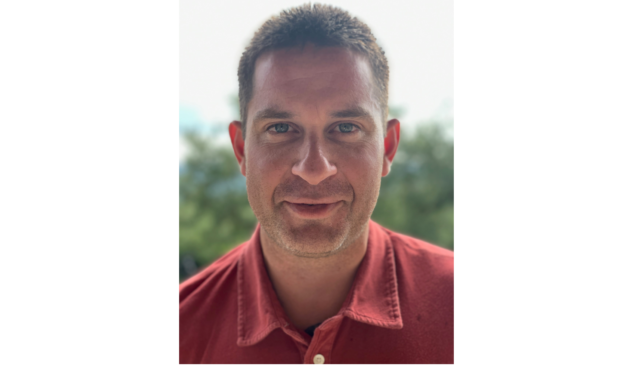ECHO has a new leader
Monday, August 5, 2019 by
Chad Swiatecki The Ending Community Homelessness Coalition, one of the leading organizations involved in addressing Austin’s homelessness problem, will have a new top executive today as the group’s co-founder, Ann Howard, steps down to focus on her campaign for a seat on the Travis County Commissioners Court.
ECHO’s new leader, Matthew Mollica, comes to Austin from Denver, where he served as the vice president of housing assistance for the Colorado Coalition for the Homeless. He previously worked as housing coordinator for the Brilliant Corners nonprofit in San Francisco.
Mollica starts his position the same day ECHO and other organizations focused on homelessness will get a look at how much money will be available in the next city budget. City leaders have previously said the city cannot shoulder the entire $30 million estimated annual price tag of housing the city’s chronically homeless population, but Mollica said advocating for more funds and other resources at all levels will be an important part of his job.
“Austin has a real opportunity to scale up existing programs that are working really well,” he said. “There’s a great group of service providers and smart people working at this from a lot of different angles, and scaling up their work is what’s needed to address the scope of the problem.”
ECHO’s role is geared toward identifying and addressing gaps in services, creating long-range plans with the many service providers attached to homelessness, and measuring the effectiveness of existing programs as required for most grant-giving organizations or government agencies. ECHO also took a lead role in helping to create the city’s action plan to end homelessness, which was adopted last year.
Mollica said the rapidly growing local economy has had the same effect on Austin’s housing and homelessness landscape as in other cities, with wages lagging behind the increase in housing prices creating financial pressures that can force people into temporary or long-term homelessness.
He said the size of Austin’s homeless population – estimated at just over 2,000 people via the most recent point-in-time count – relative to the city as a whole puts it in a better position than smaller cities such as Seattle and San Francisco that have far larger homeless communities.
He said the strategy focused on getting people into stable housing with needed services that has been adopted by the city and the larger service community means it will be easier to steer work and funding more efficiently than in most other cities.
“One of the benefits is you’ve got a city administration with a really good grasp on what’s needed and comes at it from a very human perspective,” he said. “They understand you need to house folks to keep them from becoming homeless and the answer is not to move them from one part of the city to another and another. We need shelters and temporary housing, but the answer is more permanent housing options to give sustainable lasting solutions.”
In June, City Council approved changes to the city’s camping and soliciting ordinances as well as funding for the creation of a new housing center in South Austin. Those two actions have stirred up much debate and criticism over the city’s approach to homelessness, with encampments becoming more visible, provoking hostility and in some cases even violence.
Mollica thinks the emotions raised in recent weeks show there is energy in the city that can be directed toward helping the homeless.
“Lots of times, anger and hostility comes from fear, and it’s hard to watch people in that situation and not have emotion about it … the fact that there is emotion about it is important,” he said. “If you see people living in tents and under overpasses and take that for granted as just one more thing that is OK and allowing it to happen is even worse.
“This needs to be addressed on a systemic level and it’s not going to work to say that this overpass or that street corner, we need to house that camp because they’re visible. That’s not the way this is going to get solved, because this is a systemic issue solved with large strategies on a systemic scale rather than solving things campsite to campsite.”
Council Member Kathie Tovo, who has worked closely and served on board positions with ECHO, said Mollica will need to continue the operational and coordinating role ECHO carries out day to day while also holding a highly visible role as a primary advocate for fundraising for homelessness solutions.
“One of the things … that our new ECHO leader will need to be able to do too, is talk compellingly about ending homelessness,” she said. “That’s really challenging because (leaders) need to be able to both convey a sense of urgency with the issue while making people understand that it is a solvable problem.
“That balance is challenging, but it’s really critical. It’s easy for the general public to be overwhelmed by the enormity of the dollars involved and the enormity of the need, and not feeling like they can engage in a meaningful way. Ann has been able to humanize that issue and in (speaking to) audiences remind them they need to help their neighbors, and the next leader needs to able to do that too.”
The Austin Monitor’s work is made possible by donations from the community. Though our reporting covers donors from time to time, we are careful to keep business and editorial efforts separate while maintaining transparency. A complete list of donors is available here, and our code of ethics is explained here.
You're a community leader
And we’re honored you look to us for serious, in-depth news. You know a strong community needs local and dedicated watchdog reporting. We’re here for you and that won’t change. Now will you take the powerful next step and support our nonprofit news organization?






